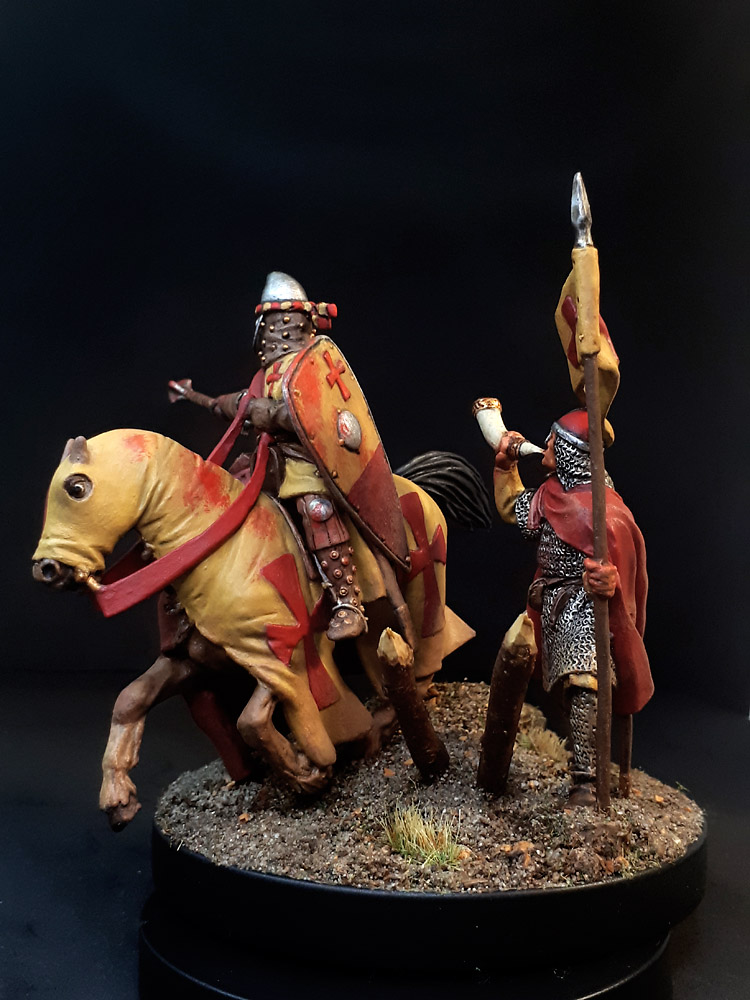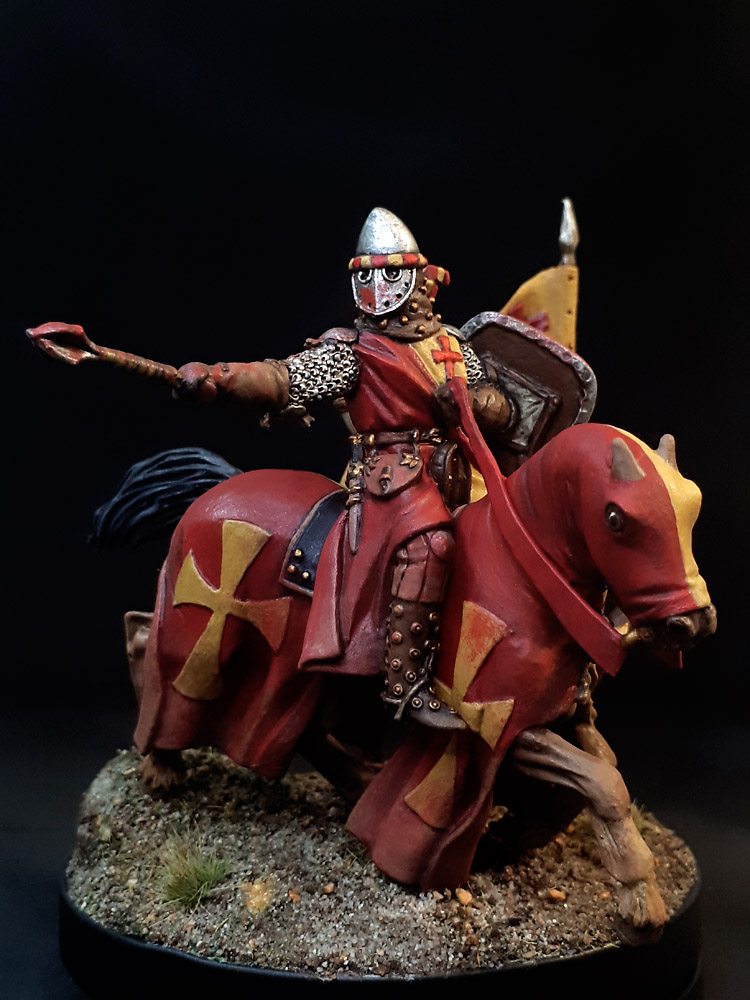
The real historical Balian was born in 1150 in the Crusader Kingdom of Jerusalem, the youngest son of Barisan of Ibelin a knight in the County of Jaffa who had been rewarded with the lordship of Ibelin.
At the Battle of Montgisard in 1177 he is consistently mentioned. The Frankish army spent the night before the battle at Ibelin, with Saladin’s army in possession of Ramla. The battle itself took place within the lordship of Ramla, Balian’s older brother Baldwin of Ramla held the most prominent command position. The Frankish victory was as much due to intimate familiarity with the countryside as courage and audacity.

The men with that intimate knowledge of the terrain necessary to know where to trap Saladin were the two men who had grown up less than 20 miles away: Baldwin of Ramla and his younger brother Balian. At this time he married Maria Comnena the dowager Queen of Jerusalem, approved by King Baldwin IV and the Archbishop of Tyre, so he was obviously well liked.
Balain took part in all of the major military campaigns of the next decade and was also a member of the High Court of Jerusalem. Significantly, in 1183 when Baldwin IV (King of Jerusalem) decided to crown his nephew during his own lifetime to reduce the risk of a succession crisis, Balian was selected — ahead of all the more senior and important barons in the kingdom -to carry the child on his shoulders to the Church of the Holy Sepulcher.
At the death of Baldwin V in the summer of 1186, Balian took a leading role in opposing the usurpation of the throne by Sibylla of Jerusalem and most especially her devious tactics to get her unpopular second husband, Guy de Lusignan, crowned. This was thwarted and Guy became King and Balian reconciled with the new King.
Balian demonstrated his loyalty to the crown by answering the royal summons to muster under the leadership of Guy when he faced Saladin’s invasion of July 1187. Against the the advice of the majority of the barons, Guy chose to abandon the Springs of Sephorie and march the army across an arid plateau to the relief of the beleaguered city of Tiberius.
The siege of Tiberius was bait, and Guy led the army into a trap set by Saladin that ended in the disastrous defeat of the Christian army on the Horns of Hattin. Balian was one of only three Christian barons to escape the debacle, more than likely fighting his way out with his Knights.
The destruction or capture of the bulk of the Christian army, however, left the Kingdom of Jerusalem undefended. And Saladin had is eyes on the greatest prize of all: Jerusalem.
Still in the city of Jerusalem were Balian’s wife, the Dowager Queen of Jerusalem, and his four young children. Balian had no intention of letting his wife and children be slaughtered and so he approached Saladin and requested a safe-conduct to ride to Jerusalem and remove his wife and children. Saladin agreed — on the condition that he ride to Jerusalem unarmed and stay only one night.
Balian had not reckoned with the reaction of the residents and refugees in Jerusalem. The arrival of a battle-tested baron — one of only two who had escaped Hattin with his honor still intact — was seen as divine intervention and the citizens along with the Patriarch of Jerusalem begged Balian to take command of the defense. The Patriarch demonstratively absolved him of his oath to Saladin. Balian felt he had no choice.
He sent word to Saladin of his predicament and Saladin graciously sent 50 of his own men to escort Balian’s family to Tripoli (still in Christian hands), while Balian remained to defend Jerusalem against overwhelming odds!. After organising fierce resistance he ultimately negotiated the surrender of Jerusalem and had 40 days to raise ransoms.
His negotiations saved somewhere between forty and sixty thousand men, women and children from slaughter or slavery. Yet he could not find the resources inside Jerusalem to save everyone. When the forty days were up, an estimated fifteen thousand Christians were still marched off into slavery despite Balian’s efforts.
Balian escorted a column consisting of roughly one-third of refugees from Jerusalem to Tyre. He continued his fight against Saladin including the eventual negotiation of a deal between Saladin and King Richard the Lionheart.
Amazingly he disappears from the historical record in 1194!
